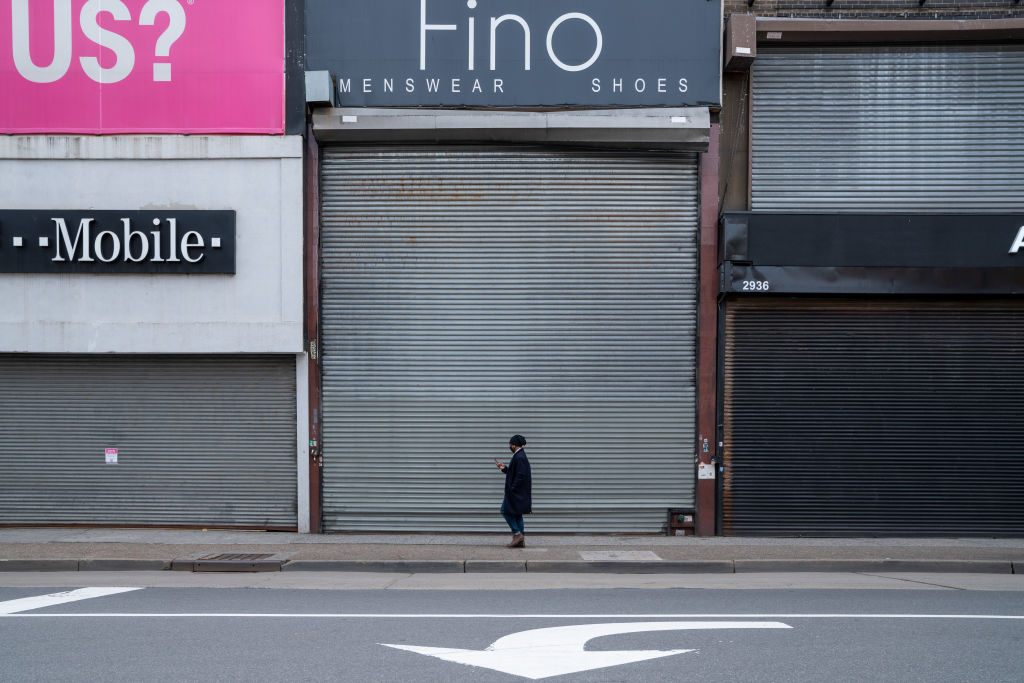- COVID-19 recovery requires a mindset akin to fighting climate change — shifting away from short-term results to focusing on sustainability and long-term resilience, McKinsey reports.
- The climate crisis will be a “far lengthier and far more disruptive” experience compared to the immediate, visceral nature of the coronavirus crisis.
- Investing in sustainability and moving to a low-carbon future will help the economy rebound from the pandemic.
Fighting the COVID-19 pandemic’s economic disruption may mean taking a page from the battle plan against a slower-moving and possibly more destructive global catastrophe, that of climate change, according to a report from McKinsey & Co.
Dealing with coronavirus and climate change requires shifting from Wall Street’s usual focus on quarterly results to one of long-term resilience, according to the management-consulting giant. Leaders in both the public and private sectors were paying greater attention to sustainability before this crisis made the unsustainable, “suddenly, became impossible to avoid,” the authors of the report wrote.
The writers call pandemics and climate change “physical shocks” that create secondary effects rippling through economies and societies. Financial shocks like market crashes are usually driven by sentiment, which can sometimes be remediated by things like central-bank intervention, they write.
“The current pandemic provides us perhaps with a foretaste of what a full-fledged climate crisis could entail,” Dickon Pinner, Matt Rogers and Hamid Samandari wrote in the report.
Dealing with pandemics and climate risk are hindered by “tragedy of the commons” problems, where one person’s activity might deplete resources or bring damages that are contrary to the good of the wider community. Coordinated action is needed to deal with both issues since they don’t respect national borders, the authors say.
“In climate change as in pandemics, the costs of a global crisis are bound to vastly exceed those of its prevention,” the report said.
The authors offer optimism alongside the doom and gloom. Emergency adjustments such as teleworking might continue after COVID-19 has eased, reducing pressure on transportation and lowering emissions. Shortages of basic supplies might result in production being moved closer to consumers, curbing renewable energy use. The disruption caused by the pandemic could spur business to take climate-change risks into consideration.
“In climate change as in pandemics, the costs of a global crisis are bound to vastly exceed those of its prevention,” according to the report. They also called for a greater respect for the advice of scientists in formulating policy and for governments to demand a focus on resilience in their planning.
Companies should use this as an opportunity to decarbonize, especially retiring low-profit plants with high emissions, and also take a systematic approach to building resilience, McKinsey said. Sustainability and resilience can increase if firms continue with some of the adaptations that they’ve adopted out of necessity.
Governments and companies need to plan for a future where multiple hazards occur at the same time, such as a pandemic coupled with floods or fires. There will have to be plans to deal with physical shocks, because as the pandemic shows they have massive, expensive impacts on both the financial system and the economy as a whole. The authors end by reminding readers that the decisions made in the next decade will determine whether we can avoid “runaway climate change.”
“Moving toward a lower-carbon economy presents a daunting challenge, and, if we choose to ignore the issue for a year or two, the math becomes even more daunting,” according to the report.
Photo by David Dee Delgado/Getty Images






















